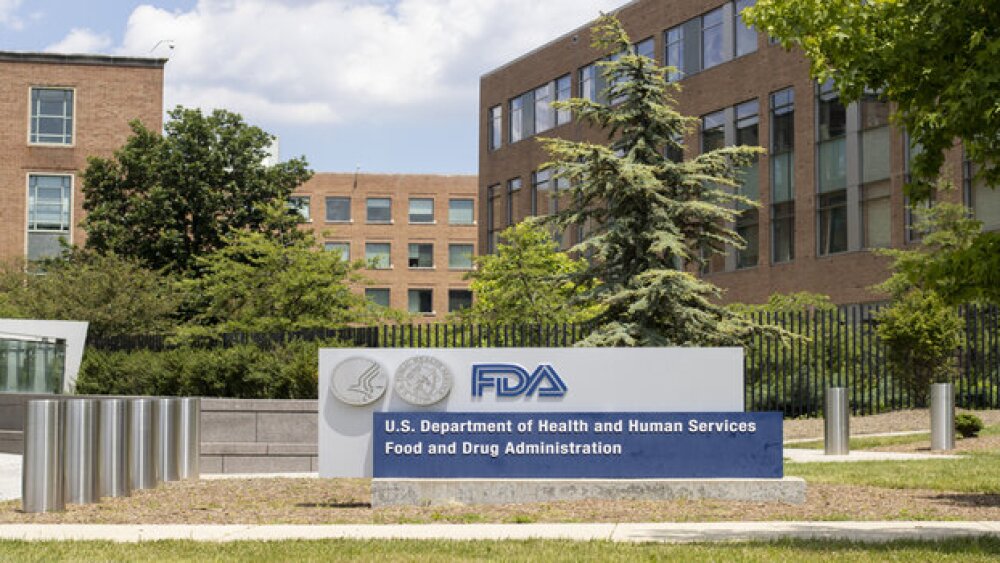The regulator’s Complete Response Letter flagged issues with the new formulation of tesamorelin’s chemistry, manufacturing and controls and sought more information about its immunogenicity risk.
Pictured: FDA signage at its office in Maryland/iStock, hapabapa
The FDA has denied approval of Theratechnologies’ F8 formulation of tesamorelin, which the Canadian biotech was proposing to reduce excess abdominal fat in patients with HIV and lipodystrophy, the company announced Wednesday.
In its Complete Response Letter, the regulator pointed to issues regarding tesamorelin’s chemistry, manufacturing and controls, particularly regarding impurities, microbiological assays the stability of the lyophilized drug as well as the final reconstituted product.
The FDA is also seeking additional information on the potential effects of the more concentrated formulation of tesamorelin on immunogenicity risk.
Theratechnologies CMO Christian Marsolais said in a statement that the company is “disappointed” by the FDA’s rejection but that it will “address these new comments as swiftly as possible.”
“We remain focused to bringing this new formulation of tesamorelin to market as part of our commitment to innovate and simplify treatments for people with HIV,” Marsolais said.
Tesamorelin is a peptide therapeutic that mimics the growth hormone-releasing factor. The treatment works by stimulating the pituitary gland to create and release growth hormone, which in turn facilitates lipolysis and breaks down abdominal fat.
It first won the FDA’s approval in 2010 and an F4 formulation—which is four times more concentrated than the original drug product—cleared the regulatory hurdle in November 2018 and is being sold as Egrifta SV.
Theratechnologies was hoping to bring an even more concentrated formulation of tesamorelin to the market, which would allow smaller administration volumes. The Montreal-based company was planning to sell the F8 version under the brand name Egrifta MDV, which would be available as multiple-dose vials that could be reconstituted just once weekly.
The company backed its supplemental Biologics License Application—which it filed in September 2023—with pharmacokinetic data demonstrating the bioequivalence of the F8 formulation with the original F1 formulation. The FDA had an initial target action date of Jan. 22, 2024, but the regulator wrote to Theratechnologies on Tuesday notifying them of a delay in the review process. The CRL came a day later.
Wednesday’s rejection will not affect Egrifta SV, which is the only FDA-approved treatment to cut abdominal fat in HIV patients with lipodystrophy, according to Theratechnologies’ announcement.
Beyond the tesamorelin product line, Theratechnologies also sells Trogarzo (ibalizumab-uiyk), a long-acting injectable anti-CD4 monoclonal antibody approved for the treatment of HIV-1 in heavily pre-treated adults in combination with other antiretrovirals.
Tristan Manalac is an independent science writer based in Metro Manila, Philippines. He can be reached at tristan@tristanmanalac.com or tristan.manalac@biospace.com.






